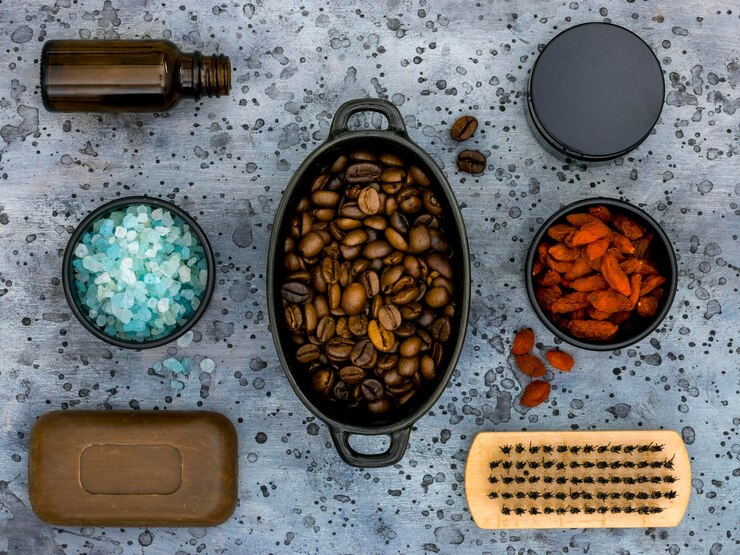
7 Best Nicaraguan Coffee Brands

Coffee enthusiasts and connoisseurs around the world are continuously seeking new and exciting flavors to elevate their coffee experience. In this quest for excellence, the rich coffee-growing regions of Central America stand out as a treasure trove of diverse flavors and profiles. One such gem is Nicaragua, a country known for producing some of the finest coffee beans in the region. In this blog, we delve into the world of Nicaraguan coffee and introduce you to seven of the best Nicaraguan coffee brands that promise to captivate your taste buds.
The Unique Flavors of Nicaraguan Coffee
Nicaragua’s diverse microclimates, varying altitudes, and fertile soils contribute to the country’s coffee beans’ unique flavors. With Pacific and Caribbean influences, Nicaraguan coffee embodies a delicate balance of brightness, body, and intricate tasting notes. From the crisp acidity reminiscent of citrus fruits to the rich chocolate undertones, Nicaraguan coffee is a journey of flavor complexity.
Best Nicaraguan Coffee Brands
a. Hacienda La Esmeralda
Hacienda La Esmeralda is a renowned Nicaraguan coffee brand that consistently delivers exceptional quality. Grown in the Jinotega region, their coffee beans exhibit a vibrant acidity, medium body, and a delightful mix of fruitiness and floral notes.
b. Selva Negra Estate
Nestled in the mountains of Matagalpa, Selva Negra Estate produces coffee with a commitment to sustainability and organic practices. Their beans showcase flavors ranging from bright citrus to nutty undertones, offering a harmonious blend of flavors.
c. Café Las Flores
Café Las Flores is celebrated for its dedication to providing traceable and high-quality coffee. The beans, grown across several microclimates, feature a diverse range of tasting notes, from caramel sweetness to a hint of tropical fruitiness.
d. Gold Mountain Coffee Growers
With a strong emphasis on community development and quality cultivation, Gold Mountain Coffee Growers presents a unique coffee experience. Their beans exude a gentle sweetness with hints of cocoa and spice, embodying the heart of Nicaraguan coffee.
e. Mierisch Family
The Mierisch family has been pioneering innovative coffee practices for generations. Their beans offer intricate flavors, including berry and stone fruit notes, along with a pleasant acidity that defines the Nicaraguan coffee experience.
f. Café Soluble Maragogipe
Café Soluble Maragogipe is known for its commitment to preserving traditional coffee processing methods. Their coffee exhibits a smooth body, accompanied by a subtle citrus brightness that showcases the region’s unique terroir.
g. Finca Los Pinos
Located in the Nueva Segovia region, Finca Los Pinos is a family-owned farm that produces coffee with a focus on sustainable and environmentally friendly practices. The beans boast flavors of chocolate and dried fruit, capturing the essence of Nicaraguan coffee.
The Process Behind Nicaraguan Coffee Excellence
Nicaraguan coffee beans are often processed using the washed method, where the cherries are depulped, fermented, and then washed to remove the mucilage. This meticulous process enhances the beans’ natural flavors, resulting in the characteristic brightness and balanced acidity found in Nicaraguan coffee.
Sustainable Practices and Ethical Sourcing
Many of the best Nicaraguan coffee brands prioritize sustainability, fair wages for farmers, and ethical sourcing. Supporting these brands not only ensures a fantastic coffee experience but also contributes to the well-being of the local communities and environment.
Choosing the Right Nicaraguan Coffee for You
The best way to explore the world of Nicaraguan coffee is to select beans that match your taste preferences. Whether you enjoy a bright and zesty cup or a mellower, chocolatey one, Nicaraguan coffee offers a spectrum of options to suit your palate.
FAQs
What makes Nicaraguan coffee unique?
Nicaraguan coffee is known for its medium body, bright acidity, and diverse flavor profile. The country’s volcanic soil and varying altitudes contribute to a range of flavors from fruity and floral to chocolatey and nutty.
What are the key coffee-growing regions in Nicaragua?
Some prominent coffee-growing regions in Nicaragua include Matagalpa, Jinotega, Nueva Segovia, and Estelí. Each region offers unique climatic conditions that impact the coffee’s flavor.
What are the common coffee varietals grown in Nicaragua?
Nicaragua cultivates various coffee varietals, including Bourbon, Caturra, Catuai, Maracaturra, and Pacamara. These varietals influence the flavors and aromas of Nicaraguan coffee.
Which Nicaraguan coffee brands are known for their quality?
Some reputable Nicaraguan coffee brands include Selva Negra Estate, La Union Coffee, Café Las Flores, and Jinotega Coffee. These brands often source beans from different regions in Nicaragua.
What flavors can I expect from Nicaraguan coffee beans?
Nicaraguan coffee beans can offer a range of flavors, including bright citrus notes, chocolate undertones, fruity hints, and even floral aromatics. The specific flavors depend on factors like altitude, varietal, and processing.
What is the significance of the “Maragogipe” varietal in Nicaragua?
The Maragogipe varietal is a natural mutation of the Typica varietal. It’s known for its larger-than-average beans and unique flavor characteristics. Maragogipe coffee can showcase a mild acidity and distinctive sweetness.
Can I find single-origin Nicaraguan coffee beans?
Yes, many coffee retailers offer single-origin Nicaraguan coffee beans. These beans allow you to experience the unique flavors of coffee from specific regions within Nicaragua.
Are there any certifications I should look for when purchasing Nicaraguan coffee?
Look for certifications such as Fair Trade, Rainforest Alliance, or Direct Trade when purchasing Nicaraguan coffee. These certifications ensure ethical and sustainable sourcing practices.
How does Nicaraguan coffee compare to coffee from other Central American countries?
Nicaraguan coffee shares similarities with coffee from other Central American countries in terms of flavor profiles. However, Nicaraguan coffee is often celebrated for its balanced acidity and unique character.
Are there any specific brewing methods recommended for Nicaraguan coffee?
Nicaraguan coffee can be brewed using various methods, including pour-over, drip, French press, and espresso. The versatile flavor profile allows you to experiment and find the method that suits your taste.
Can I find organic Nicaraguan coffee options?
Yes, many Nicaraguan coffee brands offer organic coffee options. Organic certification indicates that the coffee was produced without synthetic pesticides or fertilizers.
What role does altitude play in the flavor of Nicaraguan coffee?
Altitude significantly influences the flavor of Nicaraguan coffee. Beans grown at higher elevations tend to exhibit greater complexity, brightness, and a wider range of flavor notes.
Can I visit coffee farms in Nicaragua for a coffee experience?
Yes, some coffee farms in Nicaragua offer tours and experiences for visitors. These tours provide insights into the coffee cultivation process and offer hands-on experience with the beans.
Where can I purchase high-quality Nicaraguan coffee beans?
You can find high-quality Nicaraguan coffee beans at specialty coffee shops, online coffee retailers, and even directly from some Nicaraguan coffee producers. Look for brands that prioritize sustainable practices and share information about the beans’ origin and flavor profile.
What is the history of coffee cultivation in Nicaragua?
Coffee cultivation in Nicaragua dates back to the 19th century, and the country has a rich coffee heritage. Coffee has played a significant role in Nicaragua’s economy and has contributed to both rural employment and international trade.
What is the relationship between shade-grown coffee and Nicaraguan coffee beans?
Many Nicaraguan coffee farms practice shade-grown cultivation, where coffee plants are grown under the canopy of shade-providing trees. This method promotes biodiversity, conserves soil quality, and can result in more complex and nuanced flavor profiles in the coffee.
Are there any specific initiatives promoting sustainability in Nicaraguan coffee production?
Yes, there are initiatives aimed at promoting sustainable coffee production in Nicaragua. Organizations like Rainforest Alliance and Fair Trade work with Nicaraguan coffee farmers to ensure environmentally friendly practices and fair wages for workers.
What is the recommended roast level for Nicaraguan coffee beans?
Nicaraguan coffee beans can be roasted to various levels depending on personal preference. Light to medium roasts often highlight the beans’ bright acidity and delicate flavor notes, while darker roasts bring out more chocolatey and nutty characteristics.
Can I find information about the elevation and specific farms of the Nicaraguan coffee beans I’m purchasing?
Yes, many specialty coffee brands provide information about the elevation and specific farms or regions where their Nicaraguan coffee beans were sourced. This transparency allows you to connect with the origin of the coffee you’re enjoying.
How does Nicaraguan coffee contribute to the country’s economy?
Coffee is a significant contributor to Nicaragua’s economy. The coffee industry provides employment opportunities for many people, especially in rural areas, and contributes to the country’s exports.
Conclusion
Nicaraguan coffee is a testament to the harmony between nature, geography, and the dedicated efforts of coffee growers. With each sip, you embark on a journey that traverses the rolling landscapes of this Central American gem. The seven best Nicaraguan coffee brands mentioned in this blog are a gateway to a world of flavors, aromas, and experiences that will undoubtedly elevate your coffee journey. So, whether you’re a seasoned coffee enthusiast or an explorer seeking new tastes, Nicaraguan coffee invites you to savor its excellence one cup at a time.
Affordable and Efficient: The Best Budget Coffee Makers of 2024
Finding the best coffee maker that doesn’t break the bank can feel like a challenging quest. But with 360CoffeeMaker, we’ve simplified your search for the best home coffee maker that suits your budget. For those who prefer to brew single servings at a time, the best single cup coffee maker of 2024 is undeniably the Keurig K-Mini. Compact, stylish, and efficient, it fits perfectly in any kitchen and caters to the needs of solo coffee drinkers or households where everyone has a different coffee preference.
If you're someone who enjoys a classic brew, the best drip coffee maker of 2024 is the Mr. Coffee 12-Cup Coffee Maker. Not only is it affordable, but it's also easy to use and consistently delivers a flavorful cup. But if you're searching for the absolute best coffee maker overall, look no further than the Black+Decker 5-Cup Coffeemaker. It's affordable, efficient, and provides the perfect balance between traditional brewing methods and modern convenience. Regardless of your choice, these budget-friendly options guarantee a quality brew without the hefty price tag.




